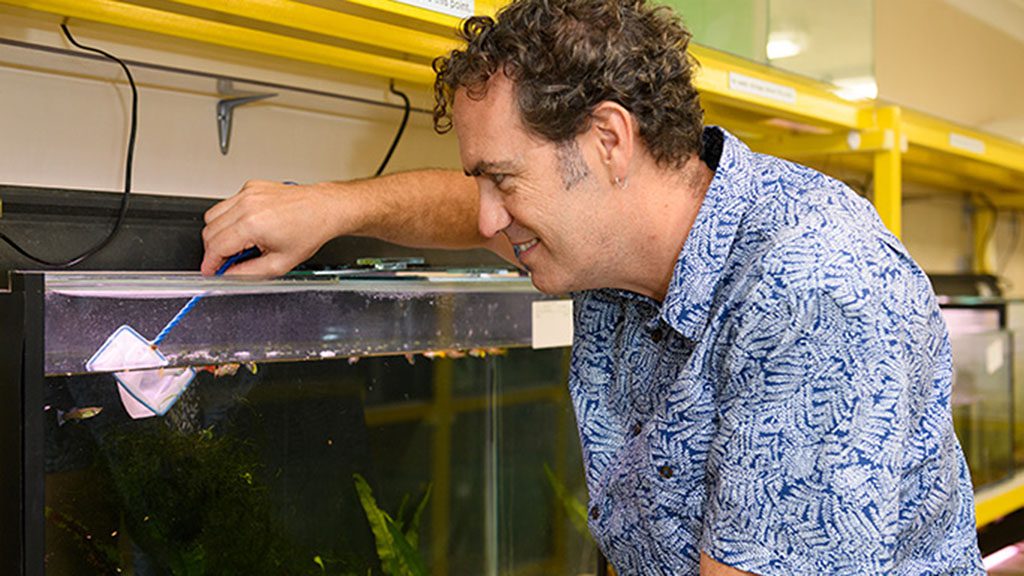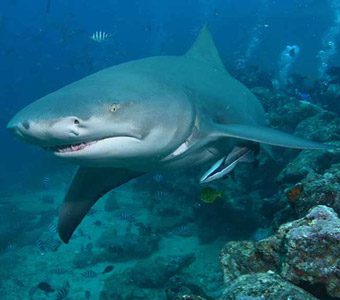Do fish have feelings? Do fish feel pain? This is a question that’s widely debated/argued between divers and recreational fishermen, fish-eaters and vegetarians.
Why do most people think fish don’t feel pain? Possibly because fish live in a world so different from ours, we can’t imagine there are any similarities. Or perhaps it’s because, if we hold to the believe that fish don’t feel pain, we won’t feel so bad about eating them? And recreational fishermen can enjoy the ‘sport’ of fishing a bit more if they think they’re not hurting them when they catch and release?

Science argues otherwise. In an article published this week in The Lighthouse, the online news platform of Macquarie University, Associate Professor Culum Brown, from the Department of Biological Sciences, explains.
While fish are not often given much cred for their cognitive sophistication, they are in fact more similar to us than we’d like to believe.
Evolution is a conservative process and that means the physiology and brain function of vertebrates (fish, amphibians, reptiles and mammals) are very similar.
Like the rest of the vertebrates, fish are sentient, that is they have a good sense of themselves and their place in the world (subjective experience).
They suffer from anxiety and stress and feel pain in the same way that you and I do. I can go to the hospital, take a cortisol kit off the shelf and use it to measure stress in fish because the hormones in fish are so similar to our own.
The reason we feel pain is because we inherited all the hardware from our fishy ancestors millions of years ago. There are some interesting implications for this, not least of which is considering how we treat fish in a welfare context.

In some states of Australia fish are not even included in the definition of ‘animal’ and are thus not protected by animal welfare legislation. Should people be catching fish for fun? Is commercial fishing acceptable from a welfare perspective? What conditions should fish be housed in when reared in aquaculture? Should you be keeping a goldfish in a tiny bowl?
Moreover, many of the drugs designed for humans are developed using fish rather than rodents as test subjects. If you take drugs, the waste products enter the aquatic environment via sewage treatment plants and impact fish. Anti-depressants and contraceptive pills work on fish in the same was as they do on you. Urban fishes are literally swimming in a pharmaceutical cocktail which has huge impacts on their behaviour and physiology.
It is time we rethink how we think about what fish think.
This article was first published in Macquarie University’s The Lighthouse online news platform.



